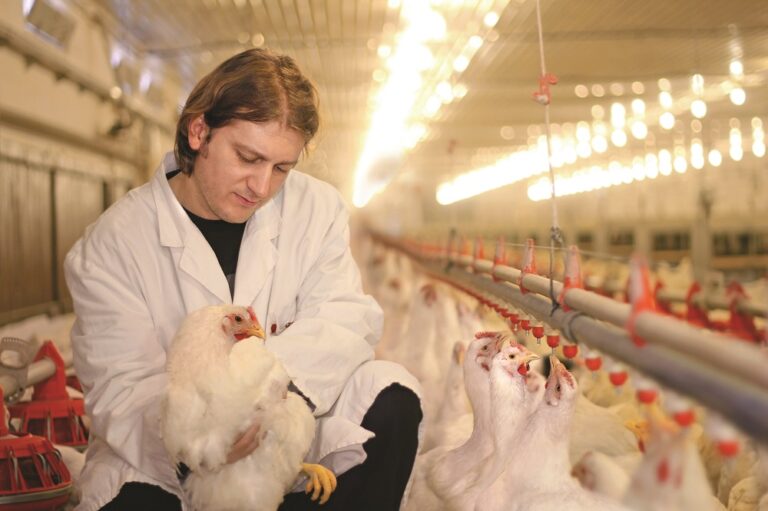New targets for the responsible use of antibiotics in UK farm animals over the next four years have been released by a task force of leading vets and farmers.
The new goals, facilitated by RUMA and set out in ‘Targets Task Force Report 2020’, build on the successful implementation of the last targets released in 2017. Overall, these have helped to halve sales of antibiotics to treat UK farm animals and achieve the fifth-lowest usage in Europe, with only Nordic countries lower.
The report, launched alongside the Veterinary Medicine Directorate’s (VMD) release of antibiotic sales data for 2019, covers 10 sectors across aquaculture, pigs, poultry and ruminants.
Targets set for the laying hen and poultry meat sectors have been met over the past four years, with the industry achieving less than 1% of laying hens medicated per day, and less that 0.05% medicated with critically important antibiotics. The poultry meat sector achieved its target of reducing overall use in broilers to 25mg/kg or less, and in turkeys reducing overall use to 50mg/kg or less. The targets for laying hens and poultry meat will remain the same. However, the game sector has been challenged to halve the total amount of antibiotics used over the next four years, and reduce use of the highest priority antibiotics by 25%.
“The UK farming industry has responded extremely well to the targets,” said RUMA chair Cat McLaughlin. “Our original aim of lowering overall antibiotic use, and in particular highest-priority critically important antibiotics (HP-CIAs), has been categorically achieved in the face of some challenging external conditions.
“Most sectors are now capturing data on antibiotic use across 90% or more of their sector which has been a key part of the success.”
Preventative use has been phased out completely in the poultry sector, meaning many animals receive no antibiotic treatments at all in their lifetime.
Professor Peter Borriello CB, chief executive of the VMD, has welcomed the report, confirming that the UK livestock sectors already have good progress behind them. “The ambition now outlined in this report, alongside the proactive, holistic approaches and focus on behaviour change principles gives me every confidence that they will once again succeed,” he said.


